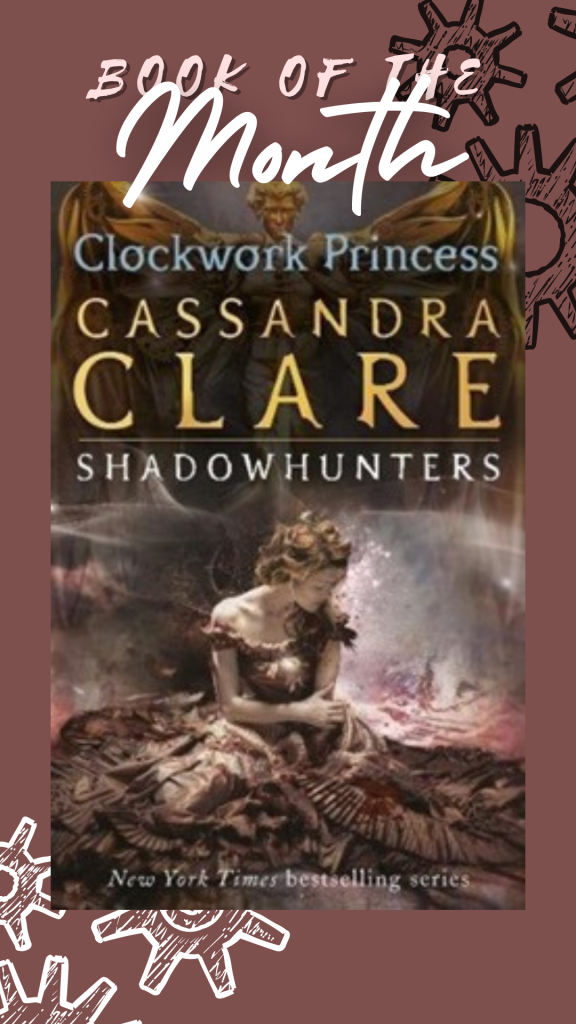In the vast symphony of literature, a writer’s voice echos distinct melodies, each as unique as a fingerprint. Mark Twain once quipped, “The difference between the right word and the almost right word is the difference between lightning and a lightning bug.” This sentiment encapsulates the essence of a writer’s voice—more than just the choice of words; it’s the soul, the individuality, the lightning that electrifies a piece.
Your writer’s voice, the way your words dance on the page, is a signature, a fingerprint that distinguishes you. This article delves into the significance of this elusive yet potent quality and the invaluable art of nurturing an authentic writing style.
Understanding Writer’s Voice
Understanding a writer’s voice is akin to recognizing a friend’s laughter in a crowded room—it’s that distinctive essence that makes their words unmistakably theirs. At its core, the writer’s voice encompasses more than just word choice; it’s the fingerprint of their expression, a symphony of style, tone, and perspective that weaves through their work.
Defining a writer’s voice requires diving into the nuances—the rhythm of sentences, the emotions underlying the narrative, and the unique personality shining through each paragraph. It’s a blend of how one chooses words, crafts sentences, and infuses them with their flair.
The characteristics shaping this voice are multifaceted. Tone sets the emotional hue of writing, whether it’s the whimsy of a children’s book or the gravity of historical prose. Narrative perspective guides the lens through which stories unfold, offering a distinct vantage point to readers. Additionally, the level of formality, humour, or introspection further colours the canvas of a writer’s voice.
Examples in literature and media abound with diverse voices painting vibrant tapestries. Consider the poetic elegance of Shakespeare, the sharp wit of Jane Austen, or the gritty realism of Ernest Hemingway. In the modern landscape, authors like J.K. Rowling or George R.R. Martin wield their voices with mastery, captivating readers with their unique styles. Beyond books, media showcases distinct voices, from the eloquence of speeches by leaders to the punchy dialogue in movies or TV shows.
These varied examples illustrate the kaleidoscope of writer’s voices—each a masterpiece unto itself, resonating with readers in different ways. It’s this diversity that enriches the literary world, showcasing the power and versatility of voices in shaping narratives and leaving indelible imprints on our hearts and minds.
1. Why Is Your Voice Important?
Your voice is the heartbeat of your writing, breathing life and authenticity into every word you pen.
Authenticity: Discussing the Value of Authenticity in Writing:
Your voice in writing is your unique fingerprint, the raw authenticity that sets your work apart. It’s the unfiltered expression of your thoughts, emotions, and experiences woven into the fabric of your words. Embracing authenticity in your voice allows readers to connect with the real, unvarnished you, fostering a deeper bond and trust.
Connection with Audience: Exploring How a Distinct Voice Can Resonate with Readers:
A distinct voice acts as a magnetic force, drawing readers into your world. When your voice resonates with authenticity, it resonates with your audience, forging an emotional connection. Readers seek narratives that speak to them personally, and a genuine voice invites them to share in your story, evoking empathy and understanding.
Differentiation: How a Unique Voice Sets You Apart in a Crowded Writing Landscape:
In a sea of words, a unique voice becomes your beacon. It’s the sparkle in the darkness that captivates attention. Your distinct voice cuts through the noise, leaving an indelible mark. It’s the secret ingredient that transforms your writing from ordinary to extraordinary, making you memorable amidst the multitude of voices vying for attention. Embrace your voice; it’s the compass that guides readers to your shores.
2. Cultivating Your Unique Style
Cultivating your unique style is a journey of self-discovery, where your pen becomes the brush painting the canvas of your distinct literary landscape.
Self-Reflection: Encouraging Writers to Introspect and Discover Their Natural Voice:
Cultivating your unique style begins within—a journey of self-discovery. Take a moment to listen to the whispers of your thoughts, letting your inner voice resonate. Embrace your quirks, fears, and passions; they shape the contours of your writing landscape. It’s in this introspection that you’ll uncover the raw essence of your voice, waiting to be harnessed and polished.
Experimentation: Trying Various Writing Styles and Techniques:
Dive fearlessly into the vast ocean of writing styles and techniques. Like an artist with a palette, experiment with different strokes—be it the simplicity of Hemingway or the vivid imagery of Tolkien. Stretch your boundaries, play with structure, and blend genres. Each experiment adds a brushstroke, enriching your unique canvas.
Finding Inspiration: Tips for Seeking Inspiration from Other Writers Without Losing Originality:
Seek inspiration like a treasure hunter, not to mimic but to ignite your creative flame. Engage with diverse authors, savour their narratives, and learn from their craft. Let their words be a muse, a catalyst that sparks your imagination. But remember, inspiration is a compass, not a map; let it guide rather than dictate, preserving the authenticity that makes your voice singular.
3. Honing Your Voice
Honing your voice is the steady chisel that sculpts your words into a masterpiece, refining your unique expression with each stroke.
Consistency: The Importance of Maintaining Your Voice Across Different Pieces:
Consistency is the heartbeat of your voice—it’s what keeps your writing authentic and recognizable. Whether you’re crafting a novel, an article, or a tweet, let your voice be the guiding star. Consistency doesn’t mean monotony; rather, it’s the familiar rhythm that threads through your diverse works, painting a coherent picture of your storytelling identity.
Revisions and Editing: How to Refine Your Voice Through Editing:
Editing is the sculptor’s tool that polishes the rough edges of your voice. Embrace revisions as opportunities to fine-tune your narrative. It’s in the rewrites and tweaks that your voice finds its clarity and resonance. Trim the excess, refine the cadence, and let each word echo with the authenticity that defines your style.
Feedback and Growth: Seeking Constructive Criticism and Using it to Improve:
Constructive feedback is the compass guiding your growth. Welcome diverse perspectives, for they’re mirrors reflecting facets of your voice you might not have noticed. Embrace criticism not as a critique of your voice, but as a pathway to evolution. Harness the insights, learn from them, and let your voice evolve, stronger and more nuanced with each experience.
4. Overcoming Challenges
Overcoming challenges is the forge where your voice is tempered, gaining strength amidst adversities, and shaping your resilience as a writer.
Fear of Uniqueness: Addressing the Fear of Being Too Different or Unconventional:
The fear of standing out like a sore thumb in a sea of writers is a common hurdle. Embrace your uniqueness as your greatest asset. Being different isn’t a flaw; it’s the spotlight that sets you apart. Embrace your quirks, for it’s these quirks that carve the niche for your voice in the literary world.
Comparison Traps: Avoiding the Pitfalls of Comparing Yourself to Other Writers:
Comparison is the thief of joy, especially in the realm of writing. Each writer’s journey is as unique as their voice. Instead of comparing, celebrate the diversity of voices around you. Use their successes as inspiration, not a yardstick for your own. Your voice is a constellation; comparing it to others dims its brilliance.
Persistence: Encouraging Perseverance in the Journey of Finding One’s Voice:
Finding your voice isn’t a sprint; it’s a marathon. Perseverance is your greatest ally. Embrace the process, celebrate the small victories, and navigate the setbacks with resilience. Your voice is a story in itself, and like all great stories, it requires dedication, patience, and unwavering persistence to unfold.
5. Embracing Evolution
Embracing evolution is the compass guiding your voice through the ever-changing currents of your writing journey.
Change and Growth: How Your Voice Might Evolve:
Your voice is a living entity, growing and evolving with each word you write. Embrace this natural progression—it’s the melody that matures with time, reflecting your experiences, wisdom, and newfound perspectives. Allow your voice to dance and evolve, echoing the journey you’ve travelled.
Adaptation: Being Open to Refining and Changing Your Voice Organically:
Just as seasons change, so does your voice. Embrace this organic evolution; let it flow naturally like a river finding its course. Adaptation isn’t about losing your essence; it’s about refining and enriching your voice with the nuances picked up along your writing odyssey.
Staying True: Balancing Evolution While Staying True to Your Core Voice:
While evolution is inevitable, staying true to your essence anchors your voice. Embrace growth without abandoning the heart of your narrative. It’s the delicate balance between evolution and authenticity that crafts the symphony of your unique voice—ever-evolving, yet unwaveringly true.
Conclusion:
In the quest to find and nurture a writer’s voice, authenticity stands as the cornerstone—embracing one’s quirks and uniqueness paints the canvas of literary identity. Consistency, resilience, and openness to evolution shape this voice, a symphony of change while staying true to its core. Embrace experimentation, seek feedback, and persist through doubts, for it’s within these challenges that the voice finds its resonance. So, writers, let your voice be the compass guiding your pen. Embrace your uniqueness; the world awaits your distinct narrative. Remember, as Maya Angelou said, “There is no greater agony than bearing an untold story inside you.” Set your voice free; let it echo across the pages, inspiring and captivating hearts.

















